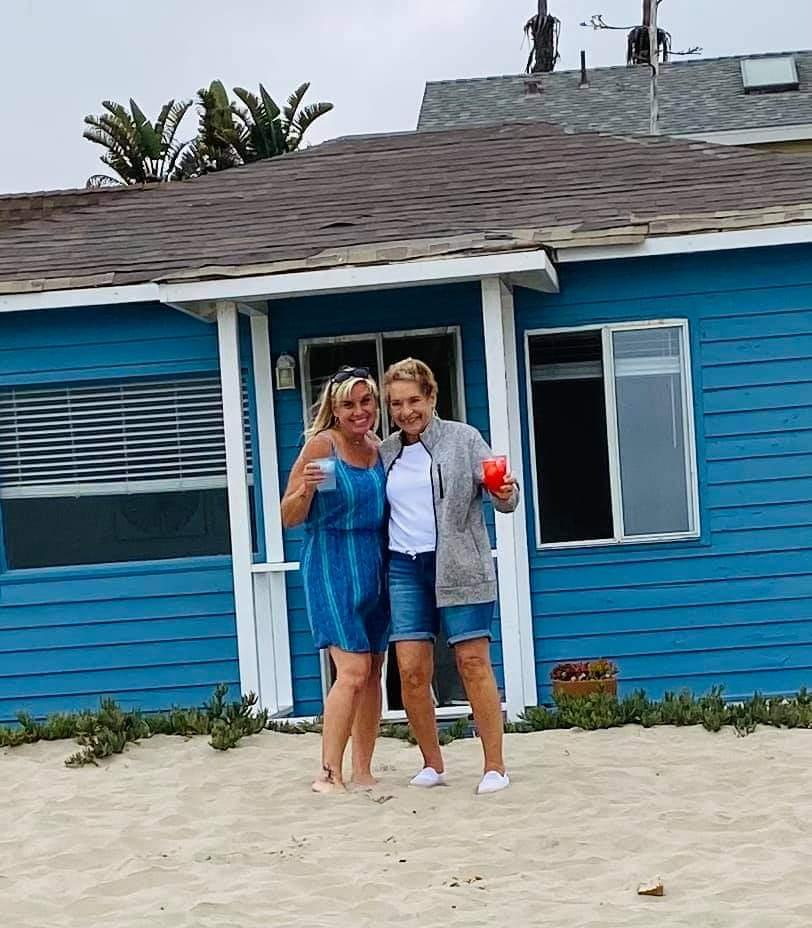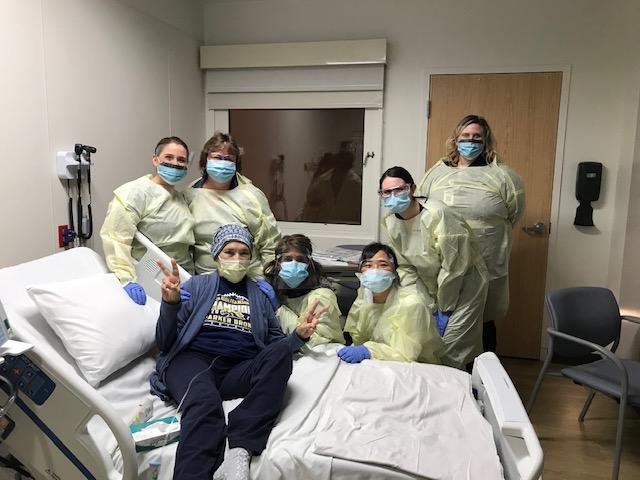“I remember asking the doctors how the cells know to go to my marrow,” said Karla. “They told me that they just know. It was Christmas time when this happened, and I felt like so many young, bright, amazing people were doing so much to save one old lady’s life.”
Karla and her blood counts were monitored for several weeks after the infusion for any side effects or signs of infection. It wasn’t long before the doctors saw a complete resolution of the lymphoma.
“It was pretty awesome,” said Dr. Fauble. “Seeing her first set of scans showing signs of improvement was truly a rewarding experience. We are thrilled to bits when our patients do well.”
Karla continued to travel to the Valley every three weeks following her CAR-T therapy, and soon graduated to every three months.
“My hair is growing back, and I even put color on it recently,” she said. “I remember when I arrived, I was broken and my body was broken, but I have been strong and authentic, and I hope it lasts for a while.”
“We want to continue to offer these treatments that have now been FDA approved, and are building a comprehensive CAR-T program to continue to offer these therapies,” said Dr. Fauble. “It truly takes a team to ensure our patients have positive outcomes like Karla’s story.”

